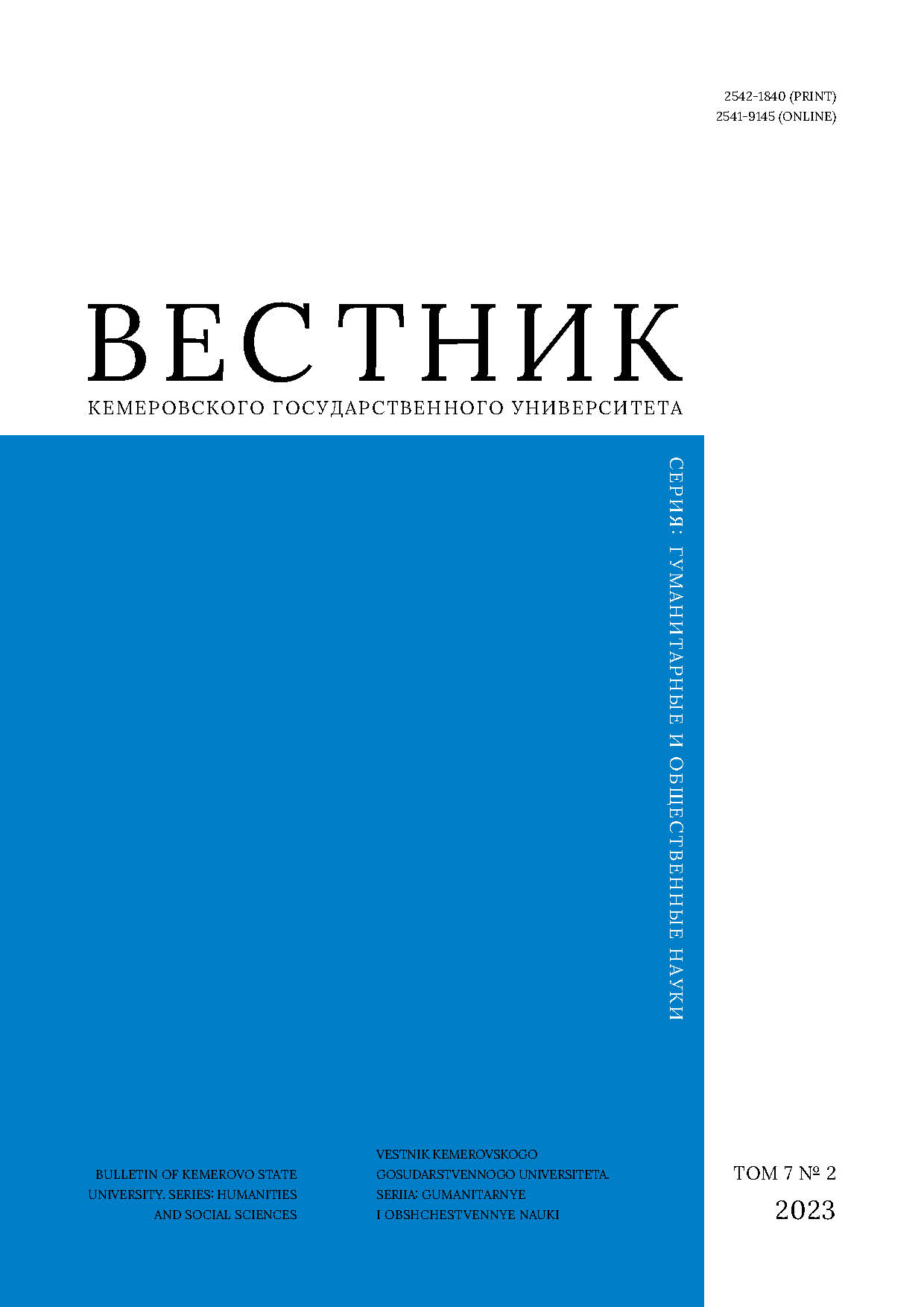Perm, Russian Federation
The main task of public administration is to improve public and municipal services by introducing new technological solutions, thus reducing the level of corruption. The research featured the methods for improving state and municipal services in Russia and assessed their anti-corruption impact. The institutional approach made it possible to study the formal legal aspects of public administration in the provision of public and municipal services, in particular, regulatory legal documents and their implementation. The research also covered the theory of the service state and positive public administration, which allows the state to adapt public services to social needs. The study relied on the formal legal method, a comparative legal analysis, and a case study. The anti-corruption tools included administrative regulations, multifunctional center management, and digital services. The research revealed the following legal and managerial problems: 1) partial violation of regulatory requirements; 2) poor implementation of regulatory and anti-corruption legal acts: service providers fail to use the potential of information technology to shape the anti-corruption behavior in citizens and organizations; 3) digital information posted on the single state portal is incomplete, unreliable, and not controlled by authorities. The article contains some recommendations and solutions.
corruption, state services, municipal services, administrative regulations, multifunctional center for the provision of state and municipal services, a single portal of state and municipal services, administrative procedures, availability of services, quality of services
1. Vasilyeva A. F. Protection of subjective public law in positive public administration. Aktual'nye problemy rossijskogo prava, 2009, (3): 182-187. (In Russ.) https://elibrary.ru/muiieh
2. Zhigalov D. V. Improving the system of providing state and municipal services by state authorities and local governments and state and municipal institutions. Mestnoe parvo, 2011, (6): 47-56. (In Russ.) https://elibrary.ru/pvnzhx
3. Zaykovsky V. N. "Service state": a new paradigm or modern technology for public administration? Digest Finance, 2014, (3): 35-45. (In Russ.) https://elibrary.ru/sjtpvh
4. Kairova E. F. Local issues such as municipal services: an analysis of the theoretical foundations. Formirovanie gumanitarnoi sredy v vuze: innovatsionnye obrazovatelnye tekhnologii. Kompetentnostnyi podkhod, 2018, 1: 348-359. (In Russ.) https://elibrary.ru/ylxvpv
5. Volzhenkin B. V. Corruption. St. Petersburg: SPbLI, 1998, 42. (In Russ.)
6. Astanin V. V. Interaction of corruption and ecological crimes issues of determination, latency and criminal repression. Man: crime and punishment, 2009, (1): 126-130. (In Russ.) https://elibrary.ru/jgwece
7. Ashirbagina N. L., Frik O. V. Providing state and municipal services: a practice analysis. Aktualnye problemy gumanitarnykh i estestvennykh nauk, 2016, (4-2): 14-21. (In Russ.) https://elibrary.ru/vvvhqn
8. Glazkova L. V., Burmistrov I. A., Kazenkov O. Yu., Ermakov D. N. Etymology of corruption and its major components. Law and State: The Theory and Practice, 2017, (5): 102-106. (In Russ.) https://elibrary.ru/zekned
9. Sorokin R. S. The resistance to corruption in the sphere of public and municipal services through the transparency principle. Mezhdunarodnyi nauchno-issledovatelskii zhurnal, 2015, (2-2): 78-80. (In Russ.) https://elibrary.ru/tneevx
10. Ilyakov A. D. Administrative-legal study of the concept of corruption. Administrativnoe i munitsipalnoe pravo, 2013, (4): 342-346. (In Russ.) https://elibrary.ru/rptuhb
11. Serdalinov K. M. Anti-corruption in public services. Vestnik Akademii pravookhranitelnykh organov pri Generalnoi prokurature Respubliki Kazakhstan, 2018, (1): 91-100. (In Russ.) https://elibrary.ru/dfhujq
12. Abulkhanova G. A., Shafranskaya Ch. Ya. Digital economy as an anti-corruption tool. Dialectics of Anti-Corruption: Proc. VII All-Russian Sci.-Prac. Conf. with Intern. participation, Kazan, 24 Nov 2017. Kazan: Poznanie, 2017, 10-12. (In Russ.) https://elibrary.ru/ykkosl
13. Kairbekova A., Abramov R. A. The corruption impact on the entrepreneurship development in Russia. Human Progress, 2021, (2). (In Russ.) https://doi.org/10.34709/IM.172.6
14. Gladkikh V. N. Combating corruption in the system of state and municipal administration. Cifrovaya nauka, 2021, (6-2): 40-54. (In Russ.) https://elibrary.ru/vsslca
15. Suverneva V. A. Concept of corruption. Simvol nauki, 2020, (12-2): 67-70. (In Russ.) https://elibrary.ru/wscccv
16. Combating corruption: new challenges, ed. Khabrieva T. Ya. Moscow: INFRA-M, 2016, 376. (In Russ.) https://elibrary.ru/ytdvbb
17. Kurakin A. V., Kostennikov M. V. Administrative and legal counteraction to corruption in the public service system and in the activities of police officers of the Russian Federation and abroad. Politseiskaia deiatelnost, 2013, (1): 10-16. (In Russ.) https://elibrary.ru/qarodt
18. Kolyagina E. S. Interrelation of the administrative regulations of the state body and the official regulations of the employee. Uchenye zapiski Tambovskogo otdeleniia RoSMU, 2018, (12): 180-184. (In Russ.) https://elibrary.ru/yrmyqh
19. Kuznetsova P. Yu. Improvement of methodology of assessment of quality and availability of providing public and municipal services. State and municipal management. Scientific notes, 2019, (3): 53-58. (In Russ.) https://doi.org/10.22394/2079-1690-2019-1-3-53-58
20. Serenko E. A. The Khabarovsk Territory fulfilled the requirements for providing the population with multi-functional centers for public and state services. Prioritetnye nauchnye napravleniia: ot teorii k praktike, 2016, (22): 300-304. (In Russ.) https://elibrary.ru/vkmzer
21. Gromov I. A. Impact of digital solutions in public and municipal services on perceptions of corruption. Izvestiia Sankt-Peterburgskogo gosudarstvennogo ekonomicheskogo universiteta, 2019, (6): 173-178. (In Russ.) https://elibrary.ru/umgksp
22. Atzori L., Iera A., Morabito G. Understanding the Internet of Things: Definition, potentials, and societal role of a fast evolving paradigm. Ad Hoc Networks, 2017, 56: 122-140. https://doi.org/10.1016/j.adhoc.2016.12.004
23. Ivanov L. L. Improving anti-corruption mechanisms in public authorities in the context of digitalization. Molodoi uchenyi, 2022, (23): 279-280. (In Russ.) https://elibrary.ru/thmlsy
24. Alekseev S. L., Alekseeva Yu. S. Fundamentals of anti-corruption law. Kazan: Academy of Social Education, 2015, 184. (In Russ.) https://elibrary.ru/bnbxmo
25. Smirnova T. V. Efficiency of public and municipal services in regions: sociological analysis. Bulletin of Udmurt University. Sociology. Political Science. International Relations, 2022, 6(1): 19-28. (In Russ.) https://doi.org/10.35634/2587-9030-2022-6-1-19-28


















